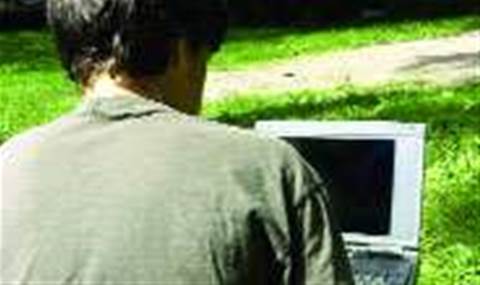The UK government has made a U-turn in its efforts to clamp down on piracy, announcing today that it will consider cutting off illegal downloaders from the internet.
If the proposals are enforced, the UK will be the first country in Europe to restrict citizens' access to the internet. Some citizen rights groups have criticised the move, arguing that internet access should be considered a fundamental human right.
In May, similar proposals were driven forward in France by president Nicolas Sarkozy under a 'three-strikes' policy, whereby file sharers would be kicked off the internet for up to a year after three offences.
But the country's highest authority, the Constitutional Council, ruled against the plans, insisting that internet freedom is essential to a modern democracy.
The UK government has said that suspending the internet accounts of file-sharers is still a matter for public consultation, but commentators maintain that the policy being up for consideration is a significant step change in efforts to curb illegal downloading.
The Digital Britain report outlined an agenda to reduce illegal downloads by 80 per cent over the next two years by giving new powers to Ofcom.
Under the report's proposals opened up for public consultation on 24 June, Ofcom will work with internet service providers (ISPs) to target individuals sharing files with peers, and send them written warnings. If a warning does not work, the identity of the downloader will be given to the copyright holder which will then be able to take legal action.
A new report from the Department of Business, Innovation and Skills (BIS), has added new measures to the consultation, although these will take effect only if the softer measures scheduled to be introduced next spring fail to work, according to a BIS spokeswoman.
She explained that the proposals are different from the three-strikes plans put forward by the French, even though they are similar in that two warning letters will sent before an individual is cut off from their ISP.
"The difference is that illegal downloading is a civil offence in the UK and a criminal offence in France," the spokeswoman said, although she could not explain how the difference in definition would affect an individual accused of piracy.
She added that, if the measures are introduced, it would be in early 2011.
The technical measures being proposed would involve an obligation on ISPs to take action against repeat infringers by blocking access to download sites, reducing broadband speeds, or temporarily suspending the individual's internet account.
The debate in Europe on illegal downloading has been extremely polarised. Rights holders insist that every unauthorised download from the internet is a violation of intellectual property rights and therefore illegal, while others stress that access to the internet should be viewed as a fundamental human right.
Europe tried to reach a final conclusion on the matter in early May, but the European Parliament voted against individuals' access to the internet being restricted.
The vote rests on Amendment 138 to the Telecoms Reform Package which reads: "No restriction may be imposed on the fundamental rights and freedoms of end users, without a prior ruling by the judicial authorities, notably in accordance with Article 11 of the Charter of Fundamental Rights of the European Union on freedom of expression and information."
The European Parliament did not agree with the Council, so the proposals recently entered the European Union's conciliation procedure where the two bodies will try to reach a compromise.
"What we are doing at the moment does comply with EU law, but obviously if Europe accepts Amendment 138 then we can't adopt these new measures," said the BIS spokeswoman.
Illegal downloaders face internet blackout
By
Rosalie Marshall
on Aug 26, 2009 7:23AM

Got a news tip for our journalists? Share it with us anonymously here.
Partner Content

Beyond the box: How Crayon Is Redefining Distribution for the Next Era

MSPs with a robust data protection strategy will achieve market success

Guiding customers on the uneven path to AI adoption
_(21).jpg&h=142&w=230&c=1&s=1)
Empowering Sustainability: Schneider Electric's Dedication to Powering Customer Success

How Expert Support Can Help Partners and SMBs Realize the Full Value of AI







.jpg&w=100&c=1&s=0)











